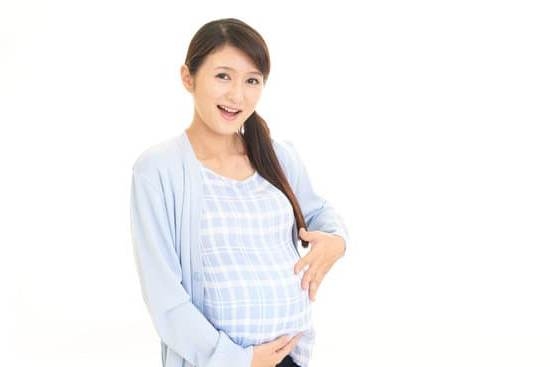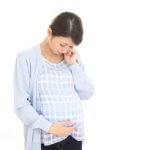Late Pregnancy Symptoms
As your pregnancy progresses, you may experience a number of new symptoms. While some are simply uncomfortable, others can be downright dangerous. Here’s a look at some of the most common late pregnancy symptoms.
Heartburn and Indigestion: Many women experience heartburn and indigestion during their pregnancies. This is due to the extra pressure the baby is putting on your stomach and intestines. To help relieve these symptoms, try eating smaller meals more often and avoiding foods that are high in fat and acid.
Many women experience heartburn and indigestion during their pregnancies. This is due to the extra pressure the baby is putting on your stomach and intestines. To help relieve these symptoms, try eating smaller meals more often and avoiding foods that are high in fat and acid. Swelling: Your body produces more fluids during pregnancy, which can lead to swelling in your hands, feet, and ankles. To help reduce swelling, avoid standing or sitting for long periods of time, and drink plenty of water.
Your body produces more fluids during pregnancy, which can lead to swelling in your hands, feet, and ankles. To help reduce swelling, avoid standing or sitting for long periods of time, and drink plenty of water. Braxton Hicks Contractions: Braxton Hicks contractions are irregular, painless contractions that occur in the late stages of pregnancy. While they may be uncomfortable, they are not dangerous.
Braxton Hicks contractions are irregular, painless contractions that occur in the late stages of pregnancy. While they may be uncomfortable, they are not dangerous. Back Pain: As your baby grows, he or she puts extra pressure on your back. To relieve back pain, try lying on your side, using a heating pad, or taking a hot bath.
As your baby grows, he or she puts extra pressure on your back. To relieve back pain, try lying on your side, using a heating pad, or taking a hot bath. Urinary Frequency: You may find yourself urinating more often than usual as your pregnancy progresses. This is due to the extra pressure the baby is putting on your bladder.
You may find yourself urinating more often than usual as your pregnancy progresses. This is due to the extra pressure the baby is putting on your bladder. Difficulty Breathing: As your baby grows, he or she may start to squish your lungs, making it difficult to breathe. To help ease breathing, try sleeping on your side, using a pillow to support your belly, and drinking plenty of fluids.
As your baby grows, he or she may start to squish your lungs, making it difficult to breathe. To help ease breathing, try sleeping on your side, using a pillow to support your belly, and drinking plenty of fluids. Itching: Some women experience excessive itching during their pregnancies. This is most likely due to the increase in estrogen levels. To relieve itching, try taking a cool bath or using a moisturizing cream.
Some women experience excessive itching during their pregnancies. This is most likely due to the increase in estrogen levels. To relieve itching, try taking a cool bath or using a moisturizing cream. Headache: Pregnancy can be a stressful time, and many women experience headaches as a result. To help relieve headaches, try drinking plenty of fluids, getting plenty of sleep, and avoiding caffeine.
Pregnancy can be a stressful time, and many women experience headaches as a result. To help relieve headaches, try drinking plenty of fluids, getting plenty of sleep, and avoiding caffeine. Fatigue: Feeling tired is one of the most common symptoms of pregnancy. This is due to the extra work your body is doing to support the growing baby. To help combat fatigue, try getting plenty of rest and exercise, and eating healthy foods.
Feeling tired is one of the most common symptoms of pregnancy. This is due to the extra work your body is doing to support the growing baby. To help combat fatigue, try getting plenty of rest and exercise, and eating healthy foods. Shortness of Breath: As your baby grows, he or she may start to squish your lungs, making it difficult to breathe. To help ease breathing, try sleeping on your side, using a pillow to support your belly, and drinking plenty of fluids.
As your baby grows, he or she may start to squish your lungs, making it difficult to breathe. To help ease breathing, try sleeping on your side, using a pillow to support your belly, and drinking plenty of fluids. Dizziness: Many women experience dizziness during their pregnancies, especially in the later stages. This is most likely due to the extra blood flow and the pressure the baby is putting on your veins. To help reduce dizziness, try sitting with your head between your knees, drinking plenty of fluids, and avoiding standing for long periods of time.
Pregnancy Symptoms Day By Day
The first trimester of pregnancy is often one of the most difficult periods for a woman. Morning sickness, fatigue, and mood swings can make the early weeks of pregnancy difficult to get through. Here is a day-by-day guide to the symptoms of pregnancy during the first trimester.
Day 1
In the first few days after conception, you may not experience any symptoms. However, some women do report feeling a bit more tired than usual and having a harder time getting out of bed.
Day 2
You may start to experience some symptoms of morning sickness, including nausea, vomiting, and a general feeling of sickness.
Day 3
You may start to feel more tired than usual and have a harder time getting out of bed. You may also start to feel moodier and more emotional than usual.
Day 4
You may start to feel more sick and nauseous, and you may also start to have cravings for certain foods.
Day 5
You may start to feel more bloated and have a harder time wearing your regular clothes. You may also start to experience heartburn and constipation.
Day 6
You may start to experience more extreme mood swings, and you may find that you are more irritable than usual. You may also start to have cramps and back pain.
Day 7
You may find that you are more tired than usual, and you may start to experience headaches. You may also start to leak a small amount of fluid from your breasts.
Day 8
You may start to feel more sick and nauseous, and you may also start to have cravings for certain foods. You may also start to experience more extreme mood swings, and you may find that you are more irritable than usual.
Day 9
You may start to feel more bloated and have a harder time wearing your regular clothes. You may also start to experience heartburn and constipation. You may also start to experience more extreme mood swings, and you may find that you are more irritable than usual.
Day 10
You may find that you are more tired than usual, and you may start to experience headaches. You may also start to experience a metallic taste in your mouth.
Day 11
You may start to feel more sick and nauseous, and you may also start to have cravings for certain foods. You may also start to experience more extreme mood swings, and you may find that you are more irritable than usual.
Day 12
You may start to feel more bloated and have a harder time wearing your regular clothes. You may also start to experience heartburn and constipation. You may also start to experience more extreme mood swings, and you may find that you are more irritable than usual.
Day 13
You may start to feel more tired than usual, and you may start to experience headaches. You may also start to experience a metallic taste in your mouth.
Day 14
You may start to feel more sick and nauseous, and you may also start to have cravings for certain foods. You may also start to experience more extreme mood swings, and you may find that you are more irritable than usual.
Day 15
You may start to feel more bloated and have a harder time wearing your regular clothes. You may also start to experience heartburn and constipation. You may also start to experience more extreme mood swings, and you may find that you are more irritable than usual.
Day 16
You may find that you are more tired than usual, and you may start to experience headaches. You may also start to experience a metallic taste in your mouth.
Day 17
You may start to feel more sick and nauseous, and you may also start to have cravings for certain foods. You may also start to experience more extreme mood swings, and you may find that you are more irritable than usual.
Day 18
You may start to feel more bloated and have a harder time wearing your regular clothes. You may also start to experience heartburn and constipation. You may also start to experience more extreme mood swings, and you may find that you are more irritable than usual.
Day 19
You may start to feel more tired than usual, and you may start to experience headaches. You may also start to experience a metallic taste in your mouth.
Day 20
You may start to feel more sick and nauseous, and you may also start to have cravings for certain foods. You may also start to experience more extreme mood swings, and you may find that you are more irritable than usual.
Day 21
You may start to feel more bloated and have a harder time wearing your regular clothes. You may also start to experience heartburn and constipation. You may also start to experience more extreme mood swings, and you may find that you are more irritable than usual.
Day 22
You may find that you are more tired than usual, and you may start to experience headaches. You may also start to experience a metallic taste in your mouth.
Day 23
You may start to feel more sick and nauseous, and you may also start to have cravings for certain foods. You may also start to experience more extreme mood swings, and you may find that you are more irritable than usual.
Day 24
You may start to feel more bloated and have a harder time wearing your regular clothes. You may also start to experience heartburn and constipation. You may also start to experience more extreme mood swings, and you may find that you are more irritable than usual.
Day 25
You may start to feel more tired than usual, and you may start to experience headaches. You may also start to experience a metallic taste in your mouth.
Day 26
You may start to feel more sick and nauseous, and you may also start to have cravings for certain foods. You may also start to experience more extreme mood swings, and you may find that you are more irritable than usual.
Day 27
You may start to feel more bloated and have a harder time wearing your regular clothes. You may also start to experience heartburn and constipation. You may also start to experience more extreme mood swings, and you may find that you are more irritable than usual.
Day 28
You may find that you are more tired than usual, and you may start to experience headaches. You may also start to experience a metallic taste in your mouth.
Day 29
You may start to feel more sick and nauseous, and you may also start to have cravings for certain foods. You may also start to experience more extreme mood swings, and you may find that you are more irritable than usual.
Day 30
You may start to feel more bloated and have a harder time wearing your regular clothes. You may also start to experience heartburn and constipation. You may also start to experience more extreme mood swings, and you may find that you are more irritable than usual.
Ectopic Pregnancy.Symptoms
An ectopic pregnancy is a pregnancy that occurs outside the uterus. Most ectopic pregnancies occur in the fallopian tubes, but they can also occur in the ovaries, abdomen, and cervix. Symptoms of an ectopic pregnancy include abdominal pain, vaginal bleeding, and spotting.
If you have any of these symptoms, call your doctor right away. An ectopic pregnancy can be life-threatening if it ruptures. Treatment for an ectopic pregnancy typically includes surgery.
If you think you might be pregnant, take a home pregnancy test. If the test is positive, make an appointment with your doctor to confirm the pregnancy and to discuss your options.
Pregnancy Symptoms On Iud
If you are pregnant and have an IUD, you may be wondering if your symptoms are related to your pregnancy or the IUD. It can be difficult to tell, since many of the symptoms are the same. Here are some of the most common symptoms of pregnancy on an IUD:
•Cramping-Cramping is a common symptom of both pregnancy and IUD use. However, if you are pregnant and have an IUD, the cramping may be more severe than usual.
•Spotting-Spotting is another common symptom of both pregnancy and IUD use. However, if you are pregnant and have an IUD, the spotting may be more frequent and heavier than usual.
•Nausea-Many women experience nausea during early pregnancy. If you are pregnant and have an IUD, the nausea may be more severe than usual.
•Fatigue-Fatigue is a common symptom of both early pregnancy and IUD use. If you are pregnant and have an IUD, the fatigue may be more severe than usual.
If you are experiencing any of these symptoms, it is important to see your doctor to determine whether or not you are pregnant. If you are pregnant and have an IUD, your doctor will likely advise you to remove the IUD.
How Early Can You Get Symptoms Of Pregnancy
?
The earliest signs of pregnancy are often difficult to distinguish from pre-menstrual symptoms. However, there are some key differences. The most common symptoms of early pregnancy are:
-Tiredness
-Nausea
-Breast tenderness
-Frequent urination
These symptoms can vary from woman to woman, and some women may not experience any symptoms at all in the early stages of pregnancy. If you are experiencing any of these symptoms, it is important to take a pregnancy test to confirm whether you are pregnant or not.

Welcome to my fertility blog. This is a space where I will be sharing my experiences as I navigate through the world of fertility treatments, as well as provide information and resources about fertility and pregnancy.





